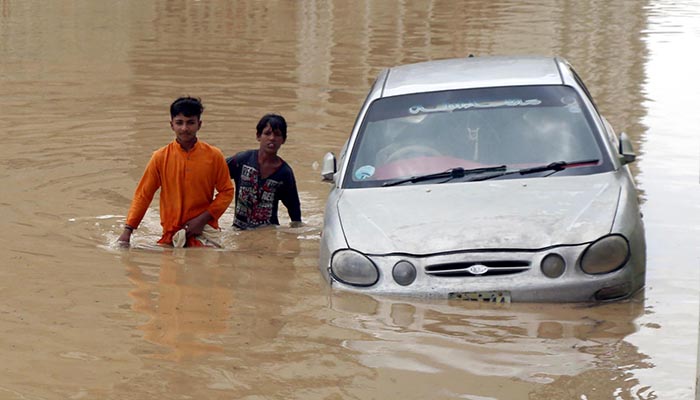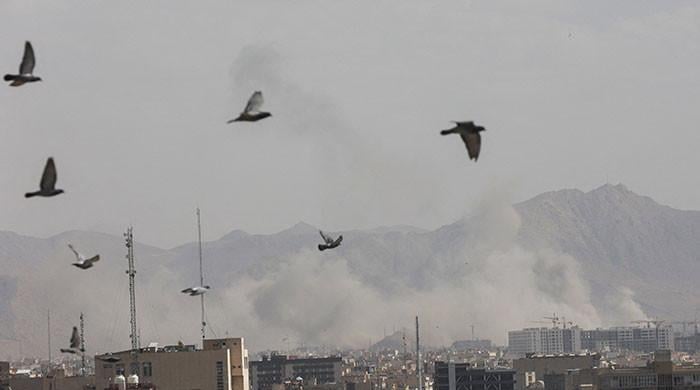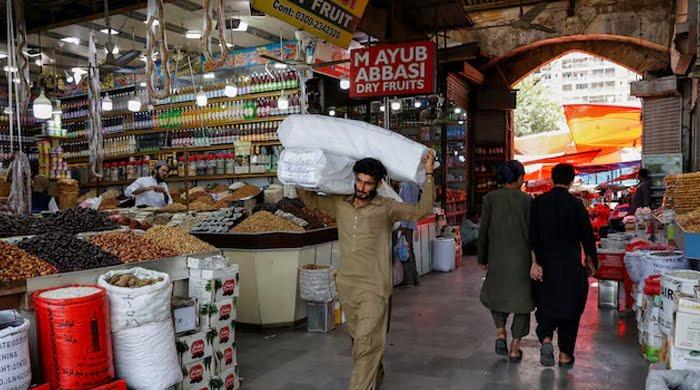Karachi rains - despair in guise of blessings
Why are residents of Karachi inundated in rainwater when the monsoon comes?
August 05, 2019

Every year it is the same story - the monsoon comes, flooding many parts of the country taking lives, destroying property, crop and roads – exposing the shamble of infrastructure and politicians’ tall claims.
Pakistanis are living in the tale “The Emperor’s New Clothes” where the leaders make a lot of noise and appear to be busy, but when things are put to the test there is nothing to show for all the ‘efforts’. They explain inefficiencies by blaming those in government before them, and before them and before them – until you lose track and let things go.
Without implying that anyone is inefficient, there is one way to keep track of things. Monsoon is not an unpredictable occurrence that creeps upon us leaving us unprepared. According to the dictionary, monsoon is “a periodic wind especially in the Indian Ocean and southern Asia. 2: the season of the southwest monsoon in India and adjacent areas that is characterized by very heavy rainfall” that according to National Geographic “….is associated with heavy rainfall. It usually happens between April and September.”
This means the authorities have ample time to prepare for the monsoon and make better and well thought out plans to tackle the situation in case of unprecedented heavy rainfall.
However, this seldom happens. Every year people are left inundated in rainwater and floods from overflowing roads and the occasional dam.
Another aspect of the monsoon (and every other month of the year) many parts of the country are deprived of electricity with the first drop of rain. The largest city of Pakistan Karachi that is also proudly called the hub and lifeline of the economy is no different from the fate of the remotest point in the country. Its non-existent infrastructure flows away with the first drops of rain leaving 15 million people – give or take considering which census you follow – deprived of the basic facilities that most urban hubs boost of all around the world.
With no proper drainage system and a bad sewage system, the roads are automatically flooded with the showers as the water has nowhere to flow. Most of the drain ways are plugged with tons of rubbish and waste that has been deposited throughout the year becoming huge mountains that haven’t been removed due to the tussle between the centre and provincial governments and everyone in between.
The rains that seldom last more than a couple of days in Karachi are enough to make the city even more unlivable if that is possible. The blessings of monsoon for thirsty cities like Karachi fast become a nuisance as people wade through flooded roads and streets unable to reach their destinations. One can only shudder to think what is happening in Sindh, Punjab, Balochistan and of course Khyber Pakhtunkhwa probably with exception to Sindh’s drought-stricken Thar which probably needed heavy rains to improve the water levels.
Power supply to the large parts of the city is not restored for long periods leading to massive frustration and anger. Ironically, people including children are electrocuted by broken live wires that have fallen on to flooded roads and because the electricity poles have current running through. This time the death from electrocution during the monsoon is 17 including two minor boys.
The situation is quite the same in other cities and villages across the country but there is no one held accountable for this. It seems that our leaders neither have an interest and will nor resources to find resolutions to the public’s problems.
This is reflected by the media where the top political news revolves around political wrangles between the ruling party and the opposition – meanwhile, the armed forces take care to tuck in the loose ends by rescuing people stranded in the rains and draining flooded roads. The public wants solutions, not baashans (rhetoric). And now that the voter is more vocal and aware, the leaders will need to pick up their game and get things done. If they don’t change their ways, the changed voter will be a tough cookie to handle come next elections.











